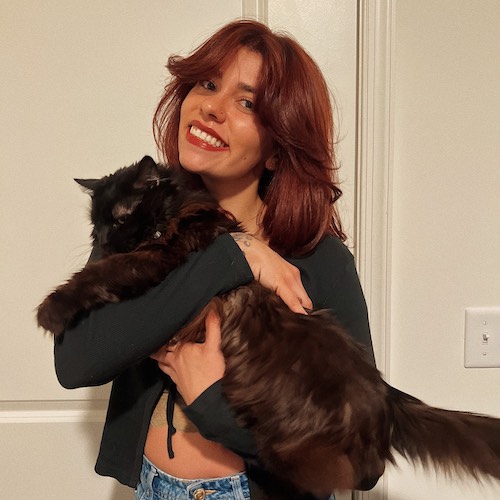In the middle of the pandemic, I failed the most important test of my senior year of vet school.
I did not pass the North America Veterinary License Exam, better known as NAVLE. So the day I got my scores, I faced my biggest fear: failure.
I felt sad, frustrated, and cried for days.
I felt not everyone could understand how hard it was.
And I don’t want you to feel like that.
Below are a few tips on how to move on after failing the NAVLE. It's never easy, but it will make you a better doctor.
1. Get your mindset right
If you don’t believe 100% in yourself, everything will be harder to achieve.
It’s okay to have self-doubt and lack of confidence but work on controlling your mind while you take this long test. You might be mentally exhausted and very stressed, but you can’t let your negative thoughts get into your brain.
Practice positive affirmations during practice tests or when taking the actual test. Or, write grateful statements of how you would feel after passing your test.
2. Practice makes perfect
Here are 3 specific practice tips:
- Practice mixed quizzes/questions as much as you can every day and every break. Getting used to answering mixed questions gives you a better feel on how the test would be.
- Don’t skip questions and review the ones you got wrong more than once.
- Also, know the percentages of questions by species and make sure to do at least two ICVA Self-Assessment tests.
3. Identify your strengths & weaknesses
Make a list of the topics you did not know during the test.
For example, if you got low percentages in bovine and feline, carefully review the diseases that affect those species. Try to find similarities between them and carefully review the basic information:
- Diagnosis
- Treatment
- Prognosis
- Breed predisposition
4. Make realistic study goals
Make a study schedule that you can stick to and be consistent. It will help achieve your primary goal — getting a passing score of 420.
Don’t try to study all the species in 4-6 weeks. Your study plan should be 3 months. Try to spend your last month reviewing and doing practice tests.
I know it is hard during clinical rotations, but always remember why you started when you felt like giving up.
Failure creates success and makes you a more resilient vet.
In veterinary medicine, becoming resilient is needed, and you will overcome more obstacles on the way. So, do not forget that you will get the magical words (PASS) as I did, and it will change everything. ❤️
Failing this big test may change your perspective and postpone your career plans for a bit. But it will make you appreciate your four-legged patients more every day. In the end, it did not stop me from starting my career and being called “Dr. Colon.”




.gif)

